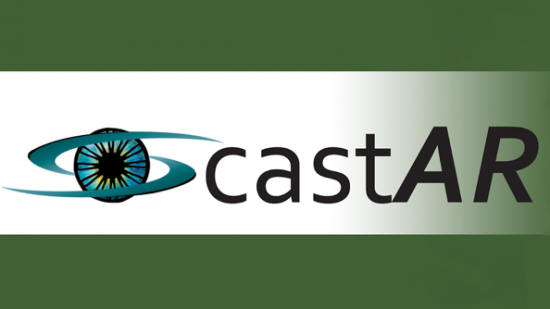If castAR sounds like a forgotten fourth announcement from Valve’s week-long unveiling of Steam’s next decade, you’ll feel rightfully smug to discover that hardware engineer Jeri Ellsworth and Linux programmer Rick Johnson were part of Gabe’s hardware division until layoffs in February. When they left Valve’s Bellevue studio, the duo took a pair of prototype augmented reality glasses with them – and eight months later they’ve balanced them on the nose of Kickstarter, like novelty magic spectacles.
Augmented reality is the stuff that allows you to see Pokemon inside tables, or something. I dunno, the 3D slider on my 3DS has been off for a while. But the idea is that it goes one better than VR: projecting images onto special retroreflective surfaces that wouldn’t normally play host to games. The example Ellsworth and Johnson cite is R2-D2 and Chewbacca’s holographic chess. If that was the part of Star Wars Episode IV: A New Hope that left you open-mouthed, then that far-away galaxy has just been brought far closer in a single jolt:
If castAR’s primary application was limited to virtual board games, that alone would be worth talking about – but Ellsworth and Johnson reckon it’s just as viable for shooters and flight sims. One peripheral, the Magic Wand, allows players to position objects in space and control them with a joystick using just one hand. Another, the RFID Tracking Grid, means you can identify, track and mess about with physical objects like cards or game pieces on the tech’s retroreflective surface.
In with the deal is a fully-functional VR clip-on attachment. Yup: castAR is also a Rift competitor on the sly.
“The clip-on has been designed to be comfortable and lightweight, yet still provide the immersive atmosphere you want,” write the developers. “With this component, you will have no need for any other head mounted display.”
Oo-err – them’s fighting words. Pledge options range from a $3 “Buy Jeri coffee” option through a $189 glasses starter package (plus $80 shipping outside the US), to a $10,000 hand-built prototype.
The starter kits are expected to be with backers by September 2014 – assuming the pair meet their $400,000 goal. But I think they might, you know?
